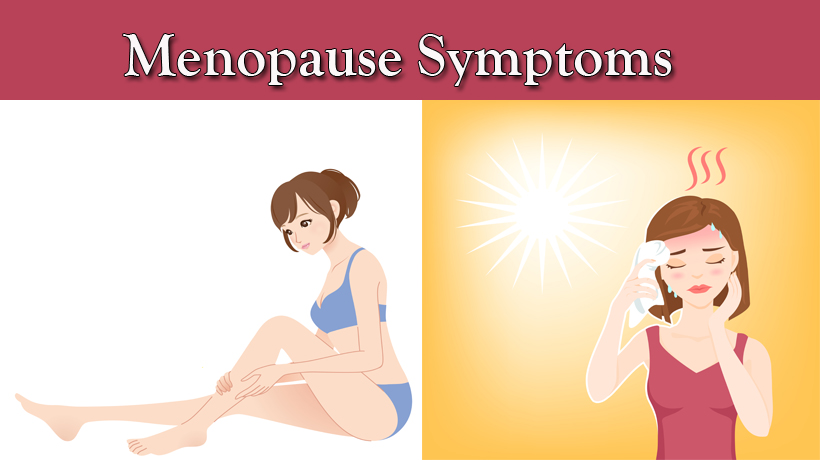Menopause is a natural transition phase in which the body greatly reduces the production of female sex hormones, according to the website Hylo. Many women go through hormonal and physical changes with various symptoms that are difficult to deal with. There are many different ways to help cure some of these symptoms, just through some lifestyle changes.
Hot flashes
According to WebMD, hot flashes are the most common symptom of menopause. It’s the sudden feeling of heat, flushed face and sweating. Hot flashes start when blood vessels near the skin’s surface widen to cool off, making you break out in a sweat. Some women even have rapid heart rates or chills as well.
Some preventative measures include avoidance of things that may trigger hot flashes, such as; spicy food, alcohol, caffeine and cigarettes. Another way to help avoid hot flashes, is by staying cool. At night, a “chill pillow” filled with water or other cooling material can help. Also, wear lightweight, loose-fitting clothes made with natural fibers, such as cotton. Plant estrogens, found in soy products, may have weak estrogen-like effects that could cut hot flashes. Doctors recommend you get your soy from foods, like tofu, rather than supplements.
Dry skin
Dry skin also occurs through menopause due to hormones, especially estrogen, states WebMD. Estrogen stimulates the formation of skin-smoothing collagen and oils. Which is why, as menopause approaches and estrogen production diminishes, dry, itchy skin becomes very common. The reduction of estrogen, and the changing of hormones in the body reduces the body’s ability to retain moisture.
A few measures to take when dealing with dry skin in menopause are to focus on smart fats, according to WebMD. These include omega-3s found in salmon, walnuts, fortified eggs, or algae oils that help produce the skin’s oil barrier, which keeps the skin well hydrated. Also, make sure to always put on sunscreen! Sunscreen keeps the skin healthy, with a broad-spectrum sunblock of SPF 15 or higher, says Andrea Cambio, MD, FAAD, a board-certified dermatologist.
Urinary symptoms
The urge to urinate frequently is also a common symptom of menopause. According to the Urogynecology in the University of Colorado, the lack of estrogen weakens the bladder, which contains urine, and the urethra, which is the tube that carries urine out of the body. This compromises the ability to control urinary functions. Reduced estrogen also alters the acidity of the vulva and the vagina, which can make the area more prone to infection by bacteria or yeast overgrowth.
A treatment that can be done is hormone therapy, states the University of Colorado. These can help restore the vagina to premenopausal condition and relieve many symptoms of urogenital atrophy. Systemic hormone therapy may reduce the urinary symptoms of urgency, frequency, nocturia and painful urination. Some other preventative measures that can be taken are reducing caffeine, maintaining a healthy diet, and even bladder-training techniques that increase the capacity to hold urine, control the timing of urination, and control body functions with the help of a machine, called biofeedback.
Emotional changes
Irritability and feelings of sadness are the most common emotional symptoms of menopause, according to Speaking of Women’s Health. WebMD also states that some of the emotional changes experienced by women undergoing pre-menopause or menopause can include; lack of motivation, anxiety, aggressiveness, fatigue, and tension.
WebMD discusses how this can be managed through lifestyle changes, such as learning ways to relax and reducing stress. Exercise and eating healthy is a way to help deal with emotional change. Another way, is by finding a self-calming skill to practice, such as; yoga, meditation or rhythmic breathing. You want to avoid alcohol and tranquilizers. Also, stay connected to those around you who you truly care about, such as friends and family.
Sources:
https://www.webmd.com/menopause/guide/menopause-hot-flashes#1
https://hylo.de/en/causes/menopause-age/
https://www.webmd.com/beauty/features/menopause-dry-skin-hormone-connection#1
https://urogyn.coloradowomenshealth.com/patients/library/menopause-urinary-symptoms
https://www.webmd.com/menopause/guide/emotional-roller-coaster



